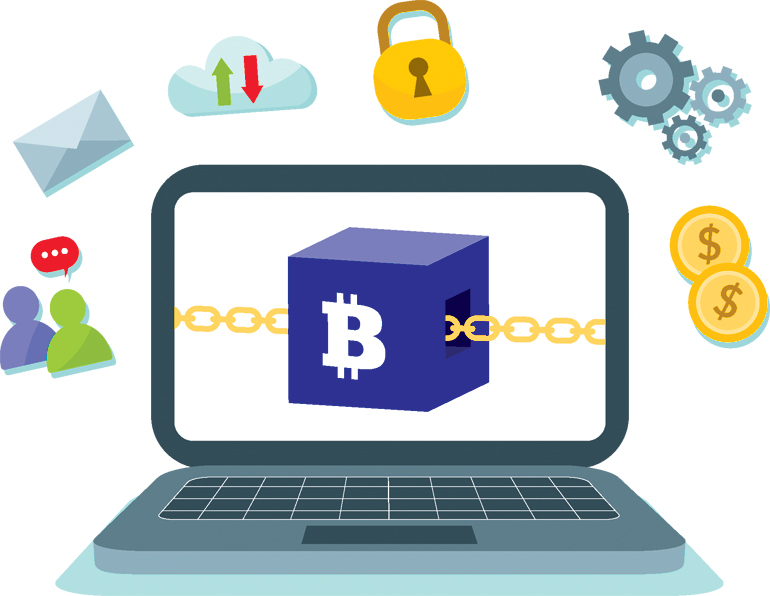Uncovering opportunities of a new digital age: Blockchain technology and Web3

Bjorn Biel M. Beltran, Special Features and Content Assistant Editor
Around 2009, Stefan Matthews, co-founder and executive chairman of global technology company nChain, had been given a whitepaper to read.
“I spent time discussing concepts and ideas with colleagues of mine [through] chats and whiteboard sessions. I made assumptions on a number of things based on my past experiences with similar topics. I was given a draft of a whitepaper to read; not just any whitepaper. This was the Bitcoin white paper,” he shared.
He recalled that the version he had received at the time was only two revisions prior to the final version that led to the launch of the technology.
Before the first Bitcoin craze shot the cryptocurrency into mainstream attention in 2016 and 2017, when it skyrocketed in value from being shy of $1,000 to over $19,000, Bitcoin and the technology behind it was relatively unknown to all but the most technical-minded innovators.
To Mr. Matthews at the time, it was simply another attempt at a new form of electronic cash, which was not particularly exciting.
“I didn’t have any magic moment with what I was seeing. It was nothing new to me at the time. I knew the intent was to launch a version of electronic cash. I thought it was just another version of electronic cash. We’d seen a number of attempts that have all failed in the past years,” he said during his presentation at this year’s BusinessWorld Economic Forum held last May 25.
“Do you have moments in your life that you look back on and kick yourself; where you had an opportunity in your hands, big or small, but you didn’t seize it? How many of those moments have you had? How big an opportunity did you miss to do something great? Or how small something seemed that actually turned into something big?”
“I consider this one of the most significant regrets in my life,” he admitted. “Not having the time available or the interest to examine and to think about the extraordinary things that this technology would bring to our world.”
Bitcoin and blockchain technology have since revolutionized the global financial industry, creating brand new ways to transact and store value. At its core, blockchain technology, which is a decentralized and transparent ledger, promises an enabled, secure and efficient transactions without the need for intermediaries, such as banks.
Bitcoin, as the first and most well-known cryptocurrency, has introduced a new asset class that enables borderless and permission-less transactions.
Cryptocurrencies, or digital or virtual currencies underpinned by cryptographic systems, have been based on the bitcoin model to enable secure online payments without the use of third-party intermediaries.
Since their inception, the rising value of cryptocurrencies has boosted their demand as a medium of exchange and investment among investors. They are also used for some international money transfers.
“In late 2014, I started looking more closely into the actual technology of Bitcoin and its transformative capabilities. I had a pretty major ‘kick yourself’ moment. But, I was extremely fortunate. I was in a position to have a second chance — the opportunity to do what I should have done in 2008 and 2009,” Mr. Matthews said.
“This time, though, I made sure that I paid full attention, but not to the cryptocurrency chaos that was spawning across the industry, but instead to the details of the underlying technology that powers [this] peer-to-peer electronic cash system — blockchain.”
Mr. Matthews said that while many of the players in the industry were busy talking about how Bitcoin will change the world as electronic cash or as a store of value, they have started the actual work of making “the transformative technology drive the largest social impact happening movement our world has ever seen.”

Through technology, we can make a more transparent and impactful society, a society that automates and enables efficient processes, allowing us to focus more on what matters in life through technology that we have today.
— STEFAN MATTHEWS, Co-Founder and Executive Chairman, NCHAIN
nChain was founded with a focus on the blockchain research, with a group of scientists and researchers focused on understanding the technical capabilities of blockchain, what blockchain solutions can be built on it, and how its features can be leveraged to power the future of the world.
The fruits of their labor, nChain’s co-founder continued, were thousands of research papers about blockchain solutions and use cases, as well as many hundreds of intellectual properties that can be licensed today.
“We knew that we had to apply this research to action, walk the talk of Bitcoin blockchain, changing the world,” he said.
“Our mission to power peer-to-peer economy today and the future, enabling value exchange for everybody with an immutable, secure, transparent, efficient and scalable public blockchain that can handle millions of transactions with low and stable cost where governments, enterprises, devices, and individuals around the globe can efficiently exchange value from data to micro to nano payments, securely, privately and without any unnecessary third parties, giving users control of their own data, removing silos, and enabling data portability,” he explained.
Mr. Matthews further noted that as a goal, nChain seeks to “complete the Internet,” one that facilitates private peer-to-peer interactions of all kinds, and create an online ecosystem that can transform the current landscape from Web2 to Web3.
A decentralized third generation of the internet based on blockchain technology, digital currencies, and NFTs is referred to as Web3. Web3’s fundamental goal is to restore individual agency over their personal information and online activities.
With decentralized applications and protocols that enable peer-to-peer interactions without middlemen, this next generation of the internet has the potential to be more safe, transparent, and open than the existing internet.
The global tech firm has already begun its work in the Philippines, with the Bataan local government signing a memorandum of understanding (MoU) with them to set up a “framework for the establishment of a digital platform for the province” aimed at improving government services and becoming a blockchain hub in Asia.
The Authority of the Freeport Area of Bataan (AFAB) has formulated the Offshore Blockchain and Financial Technology Solutions Policy to promote and regulate the activities.
According to Mr. Matthews, blockchain technology has the potential to revolutionize many aspects of Bataan, including auditing and tracking, micropayments, agriculture, disaster management, digital money issued by the central bank, and automation.
He went on to say that blockchain technology can help increase the uptake of other cutting-edge innovations in the country, such as artificial intelligence, Internet of Things, and Internet Protocol version 6.
 Additionally, nChain seeks to provide assistance in digitizing processes in universities and enterprises by building a nation of blockchain professionals, technical experts, consultants, entrepreneurs and educators. To this end, the company has also signed an MoU with the Ateneo de Manila University to help promote blockchain research and education.
Additionally, nChain seeks to provide assistance in digitizing processes in universities and enterprises by building a nation of blockchain professionals, technical experts, consultants, entrepreneurs and educators. To this end, the company has also signed an MoU with the Ateneo de Manila University to help promote blockchain research and education.
“One of the most important roles we play is to educate our clients, partners and the wider ecosystem on blockchain and web. In this data transformation age, it is important to understand blockchain and web three and its impact on data in terms of privacy and ownership, it’s positive social impact on society, and the individual empowerment inherent in Web3,” Mr. Matthews said.
Mr. Matthews said that despite past regrets, he was fortunate enough to have had the opportunity to turn such regrets around “to help build a world driven by technology innovation and to continue doing so throughout my life.”
The nChain co-founder expressed his commitment to innovation and education in many cities and nations; to contributing in empowering business communities to transform how they navigate and operate their world today; and to allowing social interaction to drive and thrive in ways yet to be seen.
“Through technology that we have today, we can make an impact. Together, we can change the world for the better; and this can all start today. Your time is now. Embrace the greatest social impact movement of all time — blockchain and Web3,” he concluded.
